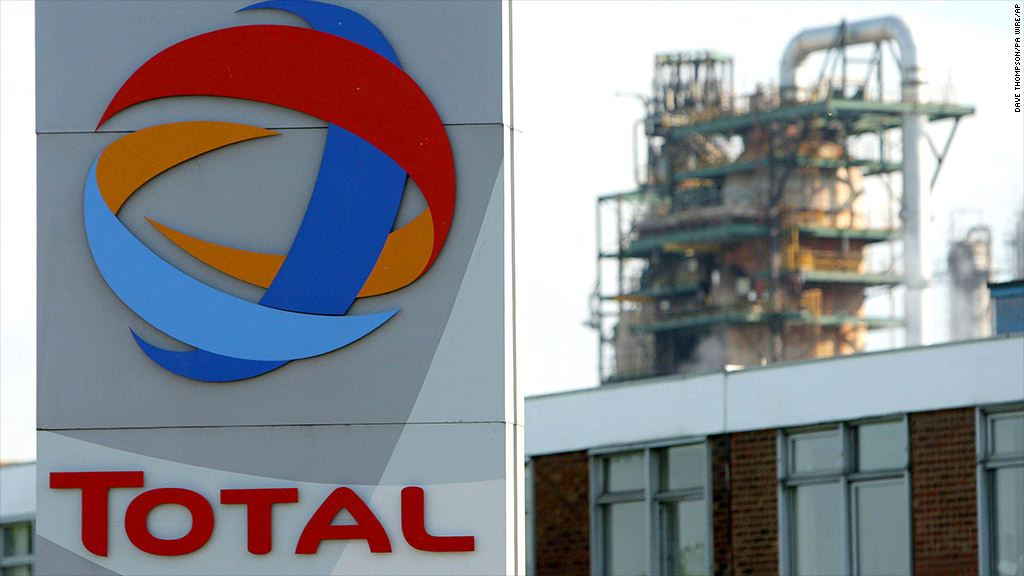
Total has become the first major energy company to invest in the U.K's budding shale industry as the country prepares to exploit its unconventional gas reserves.
In a statement Monday, France's Total (TTFNF) said it would acquire a 40% interest in two shale gas exploration licences in the northeast of England.
The firm will pay at least $21.1 million - and up to $48.1 million - for the stake.
The venture adds to Total's existing shale interests in Europe as well as the U.S., China and Australia.
The project will be operated by Island Gas, known as IGas, which takes a 14.5% stake in the licence.
Related: The push to export U.S. oil
The deal comes as Britain steps up efforts to grow its shale gas industry, providing new incentives for communities to support the controversial drilling projects.
The U.K. said Monday that local governments will be allowed to retain all local taxes paid by companies for shale gas sites, up from 50% previously.
Tax breaks are part of the government's push to unlock Britain's shale gas potential and broaden the country's energy mix. It says effective tax rates for new operators are lower in the U.K than the U.S.
Related: The world's next fracking hotspots
A handful of energy companies have been granted licenses to look for shale gas opportunities in regions across the U.K., but protests over the controversial process of hydraulic fracturing, or fracking, have delayed drilling.
Fracking involves injecting water, sand and chemicals deep into the ground at high pressure to crack shale rock and allow oil or gas to flow.
Opponents of the practice, which has spurred America's energy boom, argue fracking can contaminate local water, create earth tremors and wreak havoc on the environment.

The U.K. is thought to have considerable shale reserves. The British Geological Survey estimate around 1,300 trillion cubic feet of gas reserves are present in the north of England, more than 400 times the country's annual consumption.
However, experts say only a fraction of the available shale gas -- between 10% and 30% -- can be extracted from the ground, while the rest is unreachable and uneconomical to pursue.

